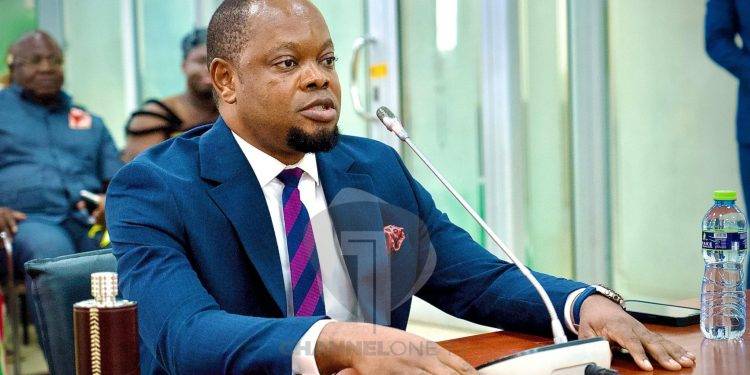The recent suspension of Ghana’s Chief Justice, Gertrude Araba Esaaba Sackey Torkornoo, has sparked significant public debate, especially regarding its constitutionality. However, the Deputy Attorney General and Minister for Justice, Dr Justice Srem-Sai, has provided a legal defence for the move, stating that it does not contravene any constitutional provision, especially in the absence of a court order explicitly halting the action.
His comments were made during an interview on the Citi Breakfast Show on Wednesday, April 23, 2025, following criticism from legal circles, particularly from former Member of Parliament and private legal practitioner Samuel Atta Akyea. Atta Akyea argued that the president’s decision to suspend the Chief Justice while the matter is still pending before the Supreme Court is not only unconstitutional but could also be interpreted as contempt of the court.
The issue stems from an interlocutory injunction filed by the Member of Parliament for Old Tafo, Vincent Ekow Assafuah, which is yet to be ruled on by the court. While critics have taken the view that the suspension should have been paused pending the outcome of the legal challenge, Dr Srem-Sai maintained that this is a misinterpretation of legal principles.
He explained that unless a specific court order instructs a public official to halt an action, that official is well within their rights to carry out their duties. In the case of the Chief Justice’s suspension, no such order exists. Therefore, the president acted within the law by moving forward with the decision.
According to Dr Srem-Sai, public officials often face conflicting interests and are required to balance them responsibly. He emphasised that the law does not demand the cessation of public duties merely because someone is dissatisfied with a decision. He pointed out that almost every public action taken can potentially leave someone aggrieved, but this alone cannot justify halting governance processes.
He further elaborated that suspending duties simply because a matter is before the courts would create a governance vacuum and undermine public service delivery. This perspective underlines the broader legal understanding that actions by public officials should continue unless a court explicitly instructs otherwise. In his view, failing to proceed with lawful duties due to pending litigation without any restraining order would not only be unnecessary but also unfair to those seeking justice through constitutional channels.
Dr Srem-Sai’s stance introduces a critical legal angle to the national conversation, one that hinges on jurisprudence and the principle of legal clarity in governance. While debates around judicial independence and executive authority continue, his remarks aim to clarify that in this case, there has been no violation of judicial process or overreach by the presidency. His explanation reflects an intention to uphold the balance between judicial respect and the constitutional mandate of executive governance in a democratic state.



